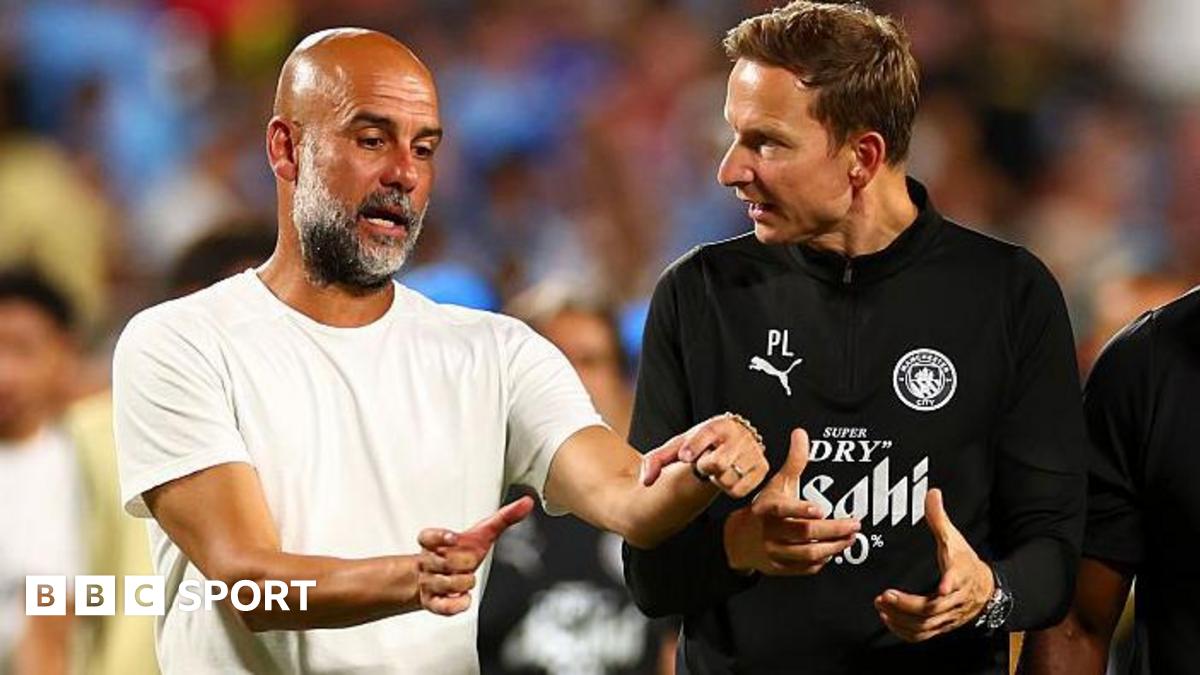Liverpool’s Harvey Elliott needs a move. The Bundesliga may be the perfect option

This has been a difficult, uncertain summer at Liverpool. Diogo Jota’s death places mundane questions about squad-planning in perspective and that will be the case for many weeks and months ahead.But questions about players’ futures still intrude and, as unwelcome as they might be, they will have to be resolved.AdvertisementAmong them: what’s next for Harvey Elliott?It’s clearly on his mind, too.“If I had it my way, I would be (at Liverpool) for the rest of my career — it’s as simple as that,” he said after open training during Liverpool’s summer tour in Hong Kong. “I love everything about the club, but at the same time I kind of need to be selfish and see what’s best for me.“I have big ambitions. I want to get in the (England) World Cup squad. I want to keep being successful as a player. It’s something I still need to review. I need to have a talk with everyone and review the situation. We have many new players who have come in so whether it blocks the path for me, I’m not sure.”What Elliott’s options are will depend on a few factors. One is affordability: Liverpool value Elliott at around £50million ($67.7m) and are have no great desire to sell him, with his contract running until June 2027.It is a considerable sum for a player who was a peripheral player for most of last season but Elliott’s stock is high following June’s European Under-21 Championship, where he showed the full breadth of his talent in England’s run to the trophy. He was an orchestrator, rather than the cast member he is for Liverpool, and you could well imagine Premier League clubs willing to make a substantial investment off the back of that impact.If not: how about Germany? While the price-tag may be prohibitive for many Bundesliga clubs, in the short term, at least, that route might really serve Elliott’s career well.Elliott was named player of the tournament as England won the European Under-21 Championship (Branislav Racko / AFP)The Athletic has reported RB Leipzig’s interest in Elliott this summer and whether a move materialises or not, it’s easy to imagine the former Fulham youngster’s form, confidence and influence flourishing within the Bundesliga, which is such a fertile environment for players of his profile.Playing time, of course, is the thrust of that argument.AdvertisementHe played the first half of the 4-2 pre-season defeat to AC Milan in Hong Kong this weekend but in 2024-25, Elliott accumulated just 371 Premier League minutes (two starts) for Liverpool. That was largely due to the foot injury he suffered in September 2024, keeping him out for nearly three months, but with Florian Wirtz signed over the summer, it’s difficult to see Elliott becoming a consistent starter in such a strong side.But, at 22, he needs consistent selection and the Bundesliga offers that opportunity, without forcing a young player to go too far down the table or make too many compromises to find it.The chance to play matters, yes, but the circumstances under which is comes matter just as much.Instead of dropping into Premier League mid-table (or lower) to become a starter, in Germany, a player of Elliott’s profile can become a pivotal figure at a top-six club, for a team where the emphasis remains on his attacking attributes: his passing, his creativity, his goalscoring, his ideas.Jobe Bellingham and his recent transfer to Borussia Dortmund offers a useful illustration. Bellingham is a more conservative player than his brother, Jude, and more system-oriented. Nevertheless, he has significant attacking attributes that, next season, will be emphasised in a Dortmund side likely to average around 60 per cent possession and to be the aggressor in most games.As a newly promoted team, it’s unlikely that Sunderland could have offered that platform in the Premier League. Realistically, he would have spent more time playing against the ball and fighting relegation. He would have accumulated minutes and experience, but not on his own terms and not in a way that really accented his full worth.Wirtz is another useful reference point.When the attacking midfielder made his controversial move from Koln to Bayer Leverkusen in 2020, one of the factors behind it was not just the opportunity to play for a bigger, wealthier club, but to join a more stable team with a consistent philosophy and a coach, in Peter Bosz, who would make Wirtz central to an attacking system.AdvertisementIn his first full season (2020-21), at 18, he started 25 games as a No 10 for a team that averaged 57.1 per cent possession (the second-highest in the league) and finished sixth. For a teenage playmaker learning his trade, that was an enviable opportunity and doubtless vital to his education. And while Wirtz was a remarkable talent, he would not have been granted that opportunity in England for a team of equivalent standing.In Germany, even clubs in Champions League contention need to take such risks. For clubs like Leverkusen — and Dortmund, Eintracht Frankfurt and RB Leipzig — realising potential and selling for large profit is part of the business model. Leverkusen are exempt from the 50+1 rule and Leipzig artificially conform to it, but without the prospect of major external investment, all clubs, Bayern aside, have to be sellers and have to be efficient at accelerating talent.That is in the favour of high-potential players like Elliott. A player of that calibre can join a powerful club, not get stuck behind high-wage earners in their mid-to-late twenties, but then also be assured of a route upwards, towards football’s summit, as and when they flourish.Interestingly, what is often seen as the Bundesliga’s brand weakness — its imbalance — is a virtue in this instance.The league’s broadcasting deal is not evenly split, meaning that teams promoted into the top flight do not receive vast payments and become instantly cash-rich. As an estimate, Bayern Munich earned about €103million from the Bundesliga’s broadcasting contrast last season. Relegated Bochum earned just under €44m.Disparities exist in the Premier League, but not in the same way. Illustrating that, Burnley have spent around €70m this summer preparing for the top flight. In Germany, Hamburg, who are returning to the Bundesliga after seven years away, have spent €4.9m.The result is an inevitable talent gap. It favours Bayern in a way reflected by their dominance, but the other stronger clubs, too, by allowing them (and their players) to often be protagonists in games, affording their young players a series of incalculable advantages that create a flattering light.Elliott made 28 appearances for Liverpool last season, scoring five times (Franck Fife/AFP via Getty Images)Recruitment matters. Leverkusen, Dortmund, Frankfurt and Leipzig all identify talent well and are extremely adept at moving through the market and acquiring players early. But when the players arrive, the environment favours their progression.Jadon Sancho, Jude Bellingham, Dani Olmo, Erling Haaland and Dominik Szoboszlai; all were extremely talented. However, their standing in the game and achievements within in it were all conditioned by where they played. If Bellingham had joined Tottenham Hotspur from Birmingham City, would he have been worth €100m so quickly? If Olmo had joined Chelsea from Dinamo Zagreb and subsisted on substitute appearances and loans, would he have become a Spanish international?AdvertisementIt’s impossible to know in either case. What is clear, though, is the Bundesliga not only offers the opportunity to play, but allows players — especially attackers — to acquire a great deal of momentum in a short space of time. Omar Marmoush is a fine example. Michael Olise left Crystal Palace as an excellent player a year ago. Today, he is a world star.Most obviously, Hugo Ekitike went from being a lost boy at Paris Saint-Germain to a potential €93m Liverpool signing at Frankfurt within two years.Elliott’s leap may not be that dramatic, but his data profile describes him, potentially, as a standout playmaker in Germany. He lacks an extra gear of speed, perhaps, but his progressive passing and the overall quality of his distribution make him an obvious fit for a league full of transitions and rapid attacking players who, figuratively, in the competitive sense, are running downhill and playing on their terms.As he reaches what appears to be a career crossroads, it’s worth dwelling on that part of the Bundesliga sales brochure.(Top photo: Elliott playing against Milan this weekend. Liverpool FC/Liverpool FC via Getty Images)








